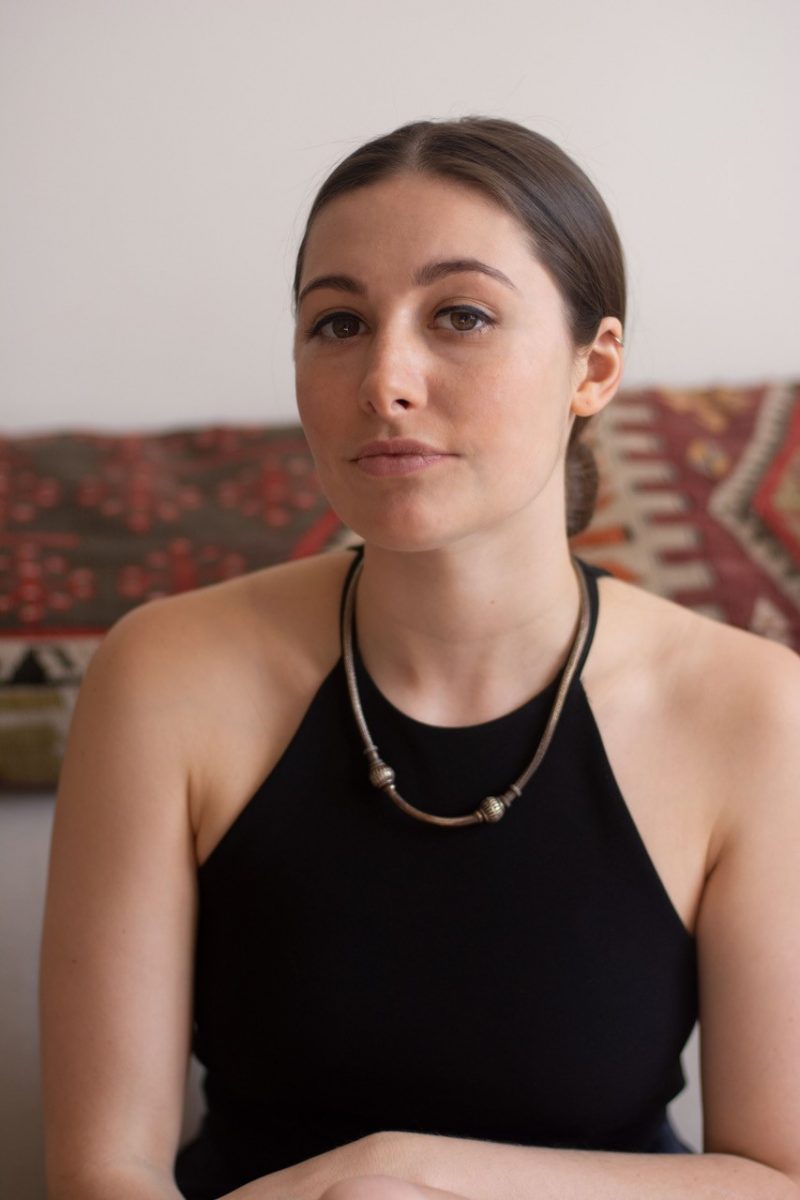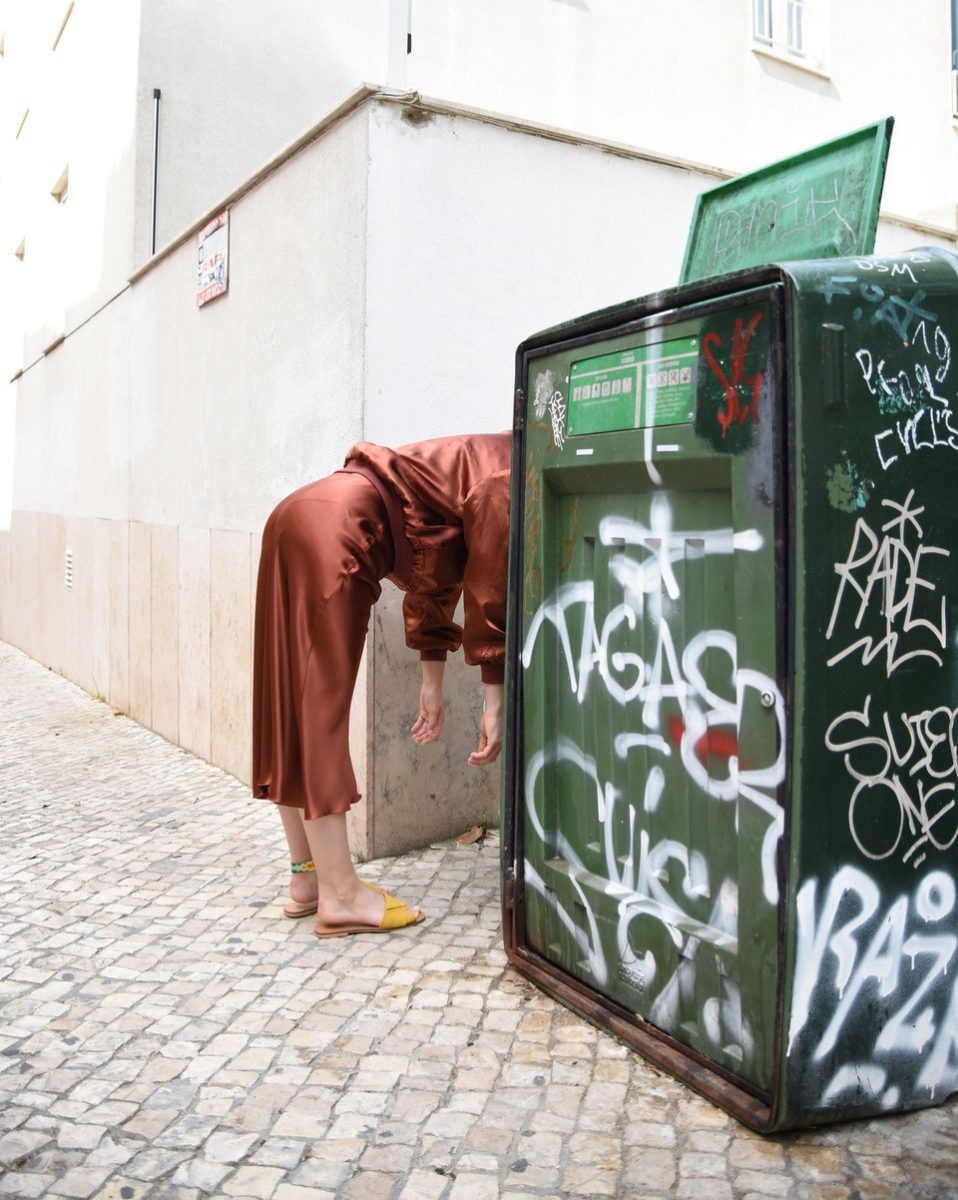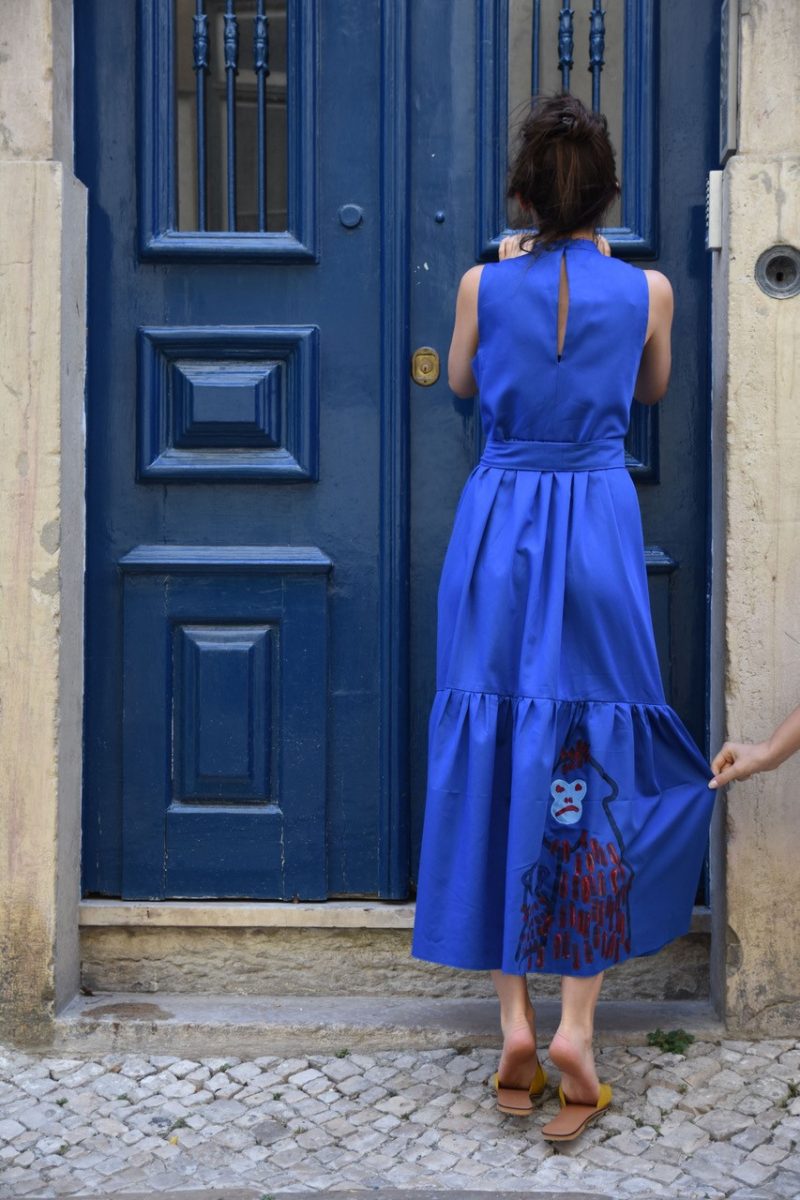Munich Startup: What motivated you to found SFAN?
Nadja Lechner: I worked in the fashion industry for several years and noticed more and more that the current system is not sustainable or fit for the future. Too little progress is made in this industry due to too much mismanagement of resources and people. From our former employer, I learned that you can think on a smaller and more local scale. At a certain point, the desire to make a change became greater than the fear of self-employment. The concept behind SFAN emerged over the years.
Alexa Philipp: The thought of becoming self-employed with our own brand at some point was in our heads from the very beginning. That being said, the concept that’s now behind our brand changed time and again over the years and, especially based on our experience in the industry, has really shifted towards sustainability and transparency. The thought of becoming self-employed was sometimes scary on the one hand, but on the other hand, it challenges us each and every day. And it involves all sorts of new experiences and gives us the freedom to solve things our own way.
“New challenges, new experiences and freedom”
Munich Startup: How did you come up with the name for your company?
Alexa Philipp: At first, “Space for a name” was just a placeholder. But the more often we used it, the more we felt it was a good fit. The name perfectly expresses our concept of transparency, because we want to put the focus on the people behind a garment and distance ourselves from anonymous mass production – which means creating space for a name.
Munich Startup: Did you have role models when starting the company?
Nadja Lechner: A definite role model for me was Jeanne de Kroon, founder of the brand Zazi Vintage. She manages to tells stories and connect people with her clothing. Plus, her coats are gorgeous!
Alexa Philipp: I’m also a big Jeanne de Kroon fan. She has managed to remain true to her concept and really motivates you to look behind the scenes.
Questioning decisions?
Munich Startup: When and where do you have the best ideas?
Nadja Lechner: While at university, it was probably when we were able to consciously put time aside to think – that’s something we can’t do very often now, so we’ve learned to be creative under pressure. A lot of times – when we’re each in the middle of our own creative processes – one of us will have an idea and call the other. Then we continue working on those thoughts together. At the moment, it’s often on the phone – but hopefully in our office in the future.
Munich Startup: What’s your greatest weakness?
Alexa Philipp: Our greatest weakness as a team is that we question decisions that have already been made. Especially when we compare ourselves with similar companies, we start to doubt our decisions and go back to comparing pros and cons. We usually end up sticking with the original decision and could have spared ourselves the time.
“Disagree with the norm”
Munich Startup: How do you deal with doubt?
Nadja Lechner: As mentioned, we do sometimes wonder which way is right for SFAN since our business model doesn’t conform to the norm in some areas. What’s important here is to constantly remind ourselves why we founded SFAN – and it’s precisely because we disagree with the norm. Then it’s definitely always helpful to look at other founders’ ideas to once again see how diverse the possibilities are. Being a team of two also really helps, because you don’t have to make decisions and deal with problems on your own.
Munich Startup: What are the three most offensive prejudices you’ve encountered while starting a company?
Alexa Philipp: On the path to founding, suddenly everyone has an opinion about your concept and knows exactly how you should get things up and running. We’ve been told a good many times that we won’t be successful if we put quality before quantity.
You also suddenly hear all kinds of advice about how you can get really big really fast and for really cheap. But that’s where our intentions are simply different. We started a company because we stand behind our concept and not because we’re hoping to have some amazing career. Of course we want to grow and develop, but it needs to be in a way that we can stand for.
Designers are often brushed off with ‘Oh, you’re doing something in fashion.’ But people often aren’t aware of how much hard work and devotion is behind a garment. But it’s precisely this knowledge that leads to greater appreciation and understanding.
SFAN: “A good time to enter the market”
Munich Startup: Do you think now is a good time to start a company? Why?
Nadja Lechner: We had already decided to found SFAN in 2019: At that point, no one could have anticipated corona or the plummeting figures in the fashion industry. But we founded the company despite corona, because it’s precisely this situation that we see as an opportunity. Because this pandemic has revealed some of the failures of the industry to an even greater extent, and consumers are being forced to reconsider things. We think that right now is a good time to put ideas on the market that are fit for the future. Because consumers are ready to explore new avenues.
Munich Startup: Do you think it’s important for more women to start companies in Germany?
Alexa Philipp: Definitely! Every industry needs ideas from different perspectives to continue to develop. We all stand to benefit from the market being distinguished by more diverse business models. And in this case, the number of women is of great importance. Not only to change the role models for generations to come, but also to eliminate prejudice and highlight different perspectives.
Setting an example for future generations
Munich Startup: What’s on top of your desks at the moment?
Nadja Lechner: What desk? At the moment, it’s just a mountain of fabric and a sewing machine! A few patterns are still laying around plus ideas for new designs or projects. The priority for us at the moment is finding partners and talking with people about SFAN. But I’m basically forced to do that from my couch.
Alexa Philipp: Considering that I’m the more chaotic one of us both, you can just imagine how my desk looks. But at the moment, I’m usually working at my sewing machine and on designing new fabric prints for summer.
Munich Startup: What makes you happy?
Nadja Lechner: At the moment, definitely sunshine and the prospects of warm summer nights so lots of fantastic ladies can take our dresses out on the town.
Alexa Philipp: The great feedback we’ve been getting from all sides lately – we’ve noticed that the hard work is worth it.






